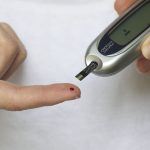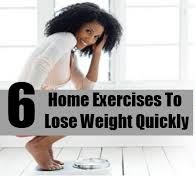Many people believe that weight loss requires hours at the gym, but everyday activities like cleaning your house can actually help you burn a significant number of calories while keeping your environment organized and fresh.
Vacuuming, mopping, scrubbing, and decluttering all count as physical activities that get your heart rate up, engage your muscles, and contribute to your daily calorie burn. For busy individuals or those who dislike structured workouts, cleaning can be an effective way to stay active while accomplishing something productive.
In this article, we’ll explore how cleaning helps you burn calories, which chores are the most effective for calorie burn, and how you can use household cleaning as a part of your weight loss plan naturally and sustainably.
How Weight Loss Works
Weight loss occurs when you burn more calories than you consume, creating a calorie deficit. While diet plays the most significant role in weight loss, physical activity increases the number of calories your body uses, making it easier to maintain a deficit without overly restrictive eating.
Physical activity doesn’t have to mean a structured workout. Non-exercise activity thermogenesis (NEAT) includes all the energy you burn outside of exercise, such as walking, fidgeting, gardening, and cleaning.
Cleaning your house is a powerful form of NEAT that can significantly contribute to your daily calorie burn while helping you maintain a clean and organized home.
How Many Calories Can You Burn Cleaning?
The calories you burn while cleaning depend on:
✅ Your body weight
✅ The type of activity
✅ The intensity and duration of the cleaning task
Here is an approximate breakdown for a person weighing around 155 pounds:
- Vacuuming: 170 calories per hour
- Mopping: 150–170 calories per hour
- Sweeping: 150 calories per hour
- Scrubbing floors/bathrooms: 180–200 calories per hour
- Carrying laundry and folding: 100–130 calories per hour
- Washing windows: 180 calories per hour
- Gardening (weeding, planting): 250–300 calories per hour
For a person weighing around 185 pounds, these numbers can increase by 20–30 calories per hour.
Over the course of a deep cleaning day, it’s possible to burn 500–1,000 calories without setting foot in a gym.
Why Cleaning Is an Effective Weight Loss Activity
1️⃣ It Keeps You Moving
Cleaning involves constant movement: bending, lifting, stretching, scrubbing, walking from room to room, and sometimes carrying heavy objects. This keeps your body in motion, increasing energy expenditure without requiring structured exercise time.
2️⃣ It Engages Multiple Muscle Groups
Scrubbing floors and walls, vacuuming, and carrying laundry baskets engage your arms, legs, and core muscles, helping you build functional strength while burning calories.
3️⃣ It Breaks Up Sedentary Time
Many people spend hours sitting throughout the day. Taking breaks to clean not only burns calories but also reduces prolonged sitting, which has been linked to health issues like poor circulation and metabolic slowdown.
4️⃣ It Can Boost Your Mental Health
Clutter and mess can increase feelings of stress and overwhelm. Cleaning can reduce stress while providing a sense of accomplishment and satisfaction, which can help prevent emotional eating and support your weight loss journey holistically.
Tips to Maximize Calorie Burn While Cleaning
✅ Increase Intensity: Pick up the pace, add lunges while vacuuming, or do calf raises while washing dishes.
✅ Turn on Music: Dance around while dusting or vacuuming to increase movement.
✅ Use a Step Stool: Cleaning high surfaces engages your core and arms.
✅ Add Bodyweight Exercises: Do a set of squats, lunges, or push-ups between tasks.
✅ Clean Regularly: Consistency helps maintain activity throughout the week.
Cleaning vs. Structured Exercise: Which Is Better for Weight Loss?
While cleaning can significantly increase your calorie burn, structured exercise still offers targeted benefits such as cardiovascular conditioning, strength training, and flexibility improvement.
However, for those who are just starting to increase their activity levels, cleaning can be a non-intimidating way to become more active and contribute meaningfully to weight loss goals.
Ideally, a combination of structured exercise and an active lifestyle that includes cleaning and walking will give you the best results for long-term weight management and health.
A Sample Cleaning Routine for Calorie Burn
Here’s how a typical deep-cleaning session can add up:
🧹 Vacuuming (45 minutes): ~130 calories
🪣 Mopping floors (30 minutes): ~85 calories
🪟 Washing windows (30 minutes): ~90 calories
🚽 Scrubbing the bathroom (30 minutes): ~90 calories
🧺 Laundry (45 minutes including carrying): ~80 calories
Total: 475 calories burned in about 3 hours while having a spotless home.
If you repeat this once a week and maintain moderate cleaning daily, these activities can significantly contribute to your weekly calorie deficit.
The Bottom Line: Can Cleaning Help You Lose Weight?
Cleaning your house is a surprisingly effective way to increase your daily calorie burn, contributing to weight loss when paired with a healthy diet. While it may not replace the benefits of structured workouts, it is a valuable part of a holistic, active lifestyle.
By viewing cleaning as an opportunity to move your body rather than a dreaded chore, you can transform household tasks into calorie-burning, strength-building, stress-reducing activities that align with your health goals.
Final Tips
✅ Pair cleaning with healthy, balanced meals to maintain a calorie deficit.
✅ Stay hydrated while cleaning, especially during intense activities.
✅ Wear a fitness tracker to stay motivated and track your movement.
✅ Make cleaning a family activity to keep everyone moving.
Conclusion
If you want to lose weight and maintain a cleaner, more organized living space, cleaning your house is a practical, accessible, and productive way to burn calories without needing extra time for the gym.
Next time you pick up the vacuum or mop, remember you’re not just cleaning your home—you’re also cleaning up your health.
READ MORE: Spring Cleaning Health Benefits
Sources:
https://pubmed.ncbi.nlm.nih.gov/12468415/
https://www.cdc.gov/healthy-weight-growth/physical-activity/index.html
https://exclusives.ca.uky.edu/2025/fcs/spring-cleaning-your-mental-health









